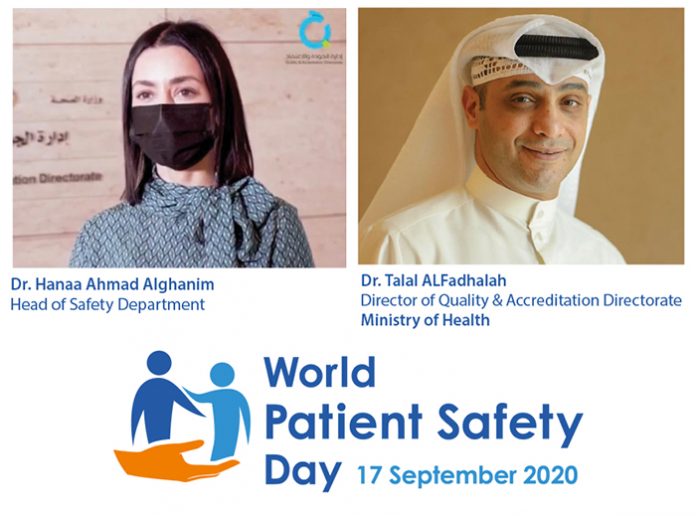THE TIMES KUWAIT REPORT
Since designating 17 September as World Patient Safety Day in 2019, the World Health Organization (WHO) has been marking this day each year in cooperation and coordination with health institutions and healthcare providers worldwide. With the theme for this year’s World Patient Safety Day being ‘Safe Maternal and Newborn Care’, the WHO is urging all stakeholders to “Act now for safe and respectful childbirth”.
Speaking to The Times Kuwait in an exclusive chat Dr Hanaa Alghanim, head of the Safety department at the Quality and Accreditation Directorate at MOH said that their job was to ensure that all care given was of the highest quality and safety level.
She said that the regulations and policy guidelines were in place to ensure that all of them work together in a multidisciplineary team to ensure that the mother and child have a safe pregnancy and after labour care of the new born.
In Kuwait, the Quality and Accreditation Directorate affiliated to the Ministry of Health, is inviting all governmental and private healthcare organizations to participate in this year’s Patient Safety Day by outlining the safety measures taken by them to ensure the safety of the mother and the newborn, and by posting awareness messages through social media.
In addition to lighting the iconic Kuwait Towers in orange to show commitment of the World Health Organization (WHO) Member States to patient safety, the Directorate is also conducting personal interviews with healthcare service providers to highlight their role in maternal and newborn care.
Since its inception as the quality assurance arm of the Ministry of Health, the Quality and Accreditation Directorate has shown commitment to patient safety in response to the global trend in reducing medical errors. It has also supported all health ministry decrees related to safety programs with the aim of raising the quality level of healthcare services in Kuwait.
Dr Talal Al Fadallah, Director of Quality and Accreditation Directorate at the MOH told The Times Kuwait that the initiative was to put patient safety as one of its priorities, and has continued to cooperate with other directorates in the Ministry of Health and healthcare organizations by developing plans and strategies and issuing the necessary decisions to implement policies based on evidence-based practice to ensure the safety of patients, their families and workers in healthcare organizations.
The Quality and Accreditation Directorate has also been keen on promoting a culture of safety; building the capabilities and skills of workers in healthcare organizations to support the implementation of safety and risk management programs; auditing the compliance to safety policies and guidelines; and following-up on the impact of their application through Safety and Risk Management Committees; and measuring patient safety indicators.
In addition, the Directorate has introduced safe practices that have been proven by research to raise the level of patient safety through the application of Patient Safety Solutions, and the WHO Global Patient Safety Challenges related to safe surgery and medication safety. The quality and safety programs also had a significant impact on the performance level of healthcare organizations in dealing with the COVID-19 pandemic through the application of the latest quality and safety tools and methods in preventive and treatment procedures, which led to ensuring the provision of safe and effective healthcare services.
Future plans for Quality Management and Accreditation include developing performance measurement programs in healthcare organizations, as well as modernizing electronic systems, including the medical records and incident reporting systems.
The Directorate also aims to achieve medication safety at all stages of drug handling, such as setting policies for the use of highly concentrated intravenous solutions, and look-alike sound-alike medications. In addition to creating a system to enhance patient disclosure between healthcare providers and recipients, to ensure the rights of everyone within the healthcare system.
The Ministry of Health has also adopted the World Health Organization’s Global Action Plan on Patient Safety 2021-2030. The implementation of this action plan is being followed up by the Permanent Committee for Monitoring Patient Safety Programs. Since patient safety is everyone’s responsibility, implementing this plan requires effective national partnerships and everyone must contribute at the national level, in addition to contribution by patients, their families, and communities, and promoting evidence-based practice, so that the ultimate vision of ‘Zero Harm’ becomes a reality.

















